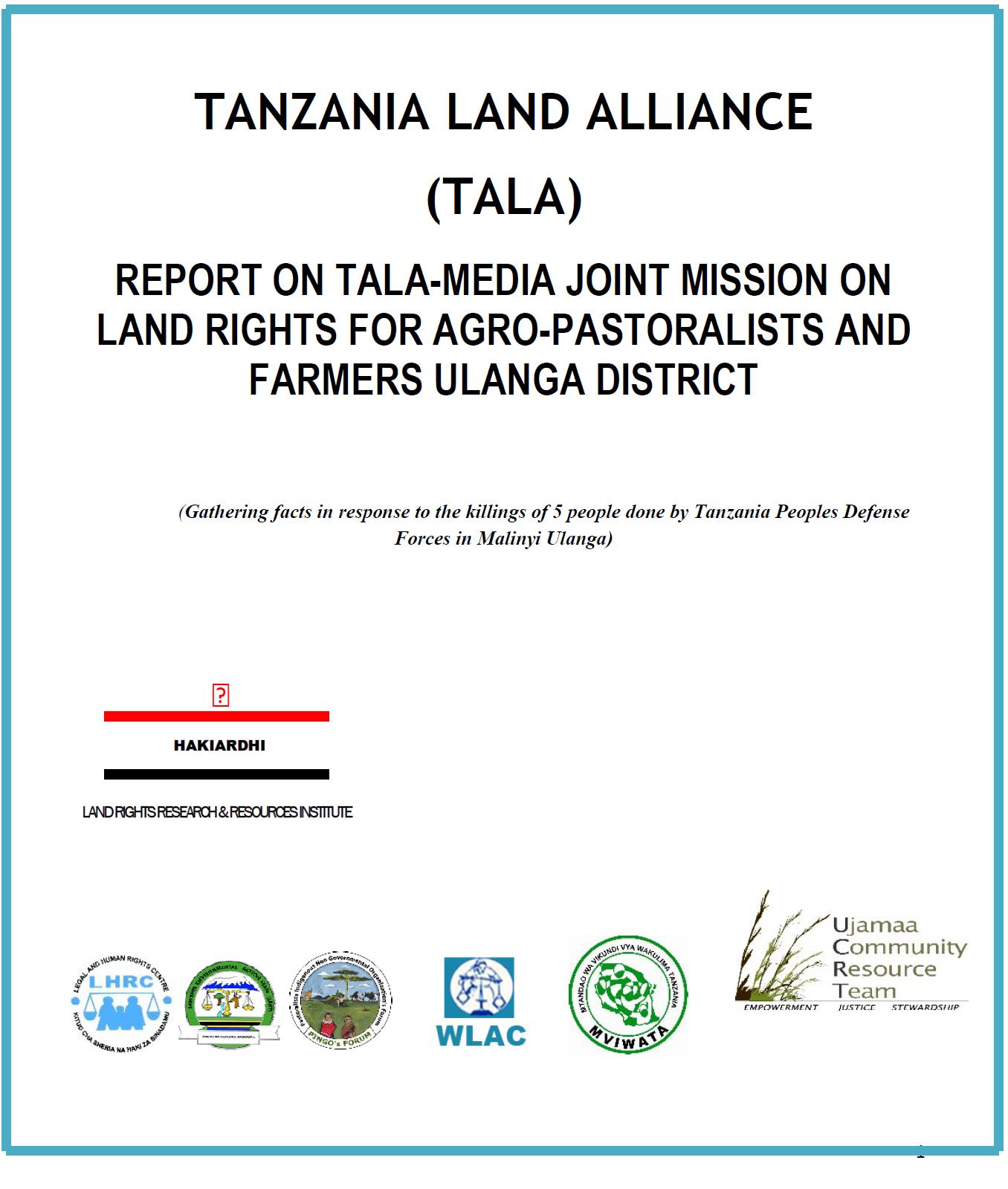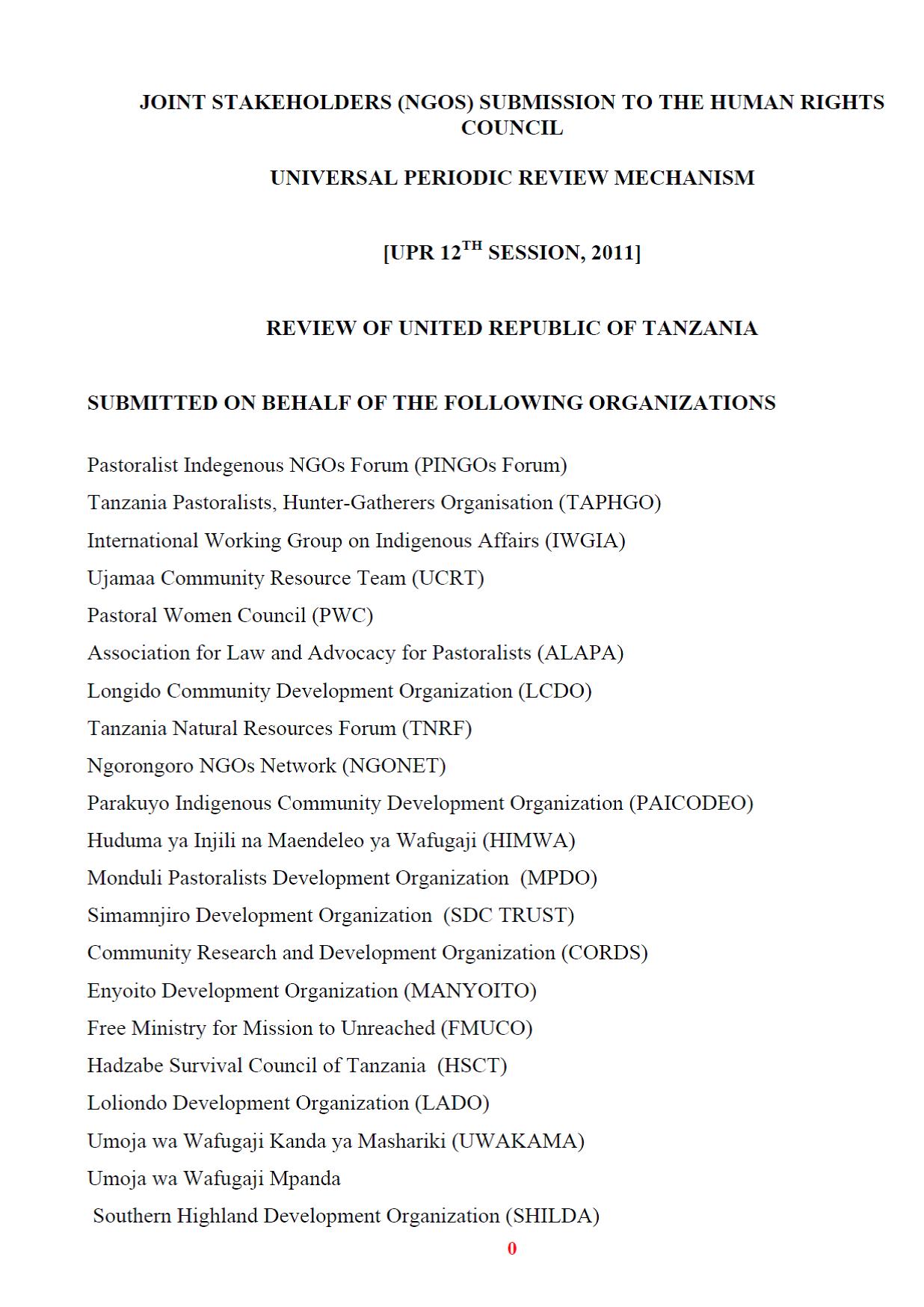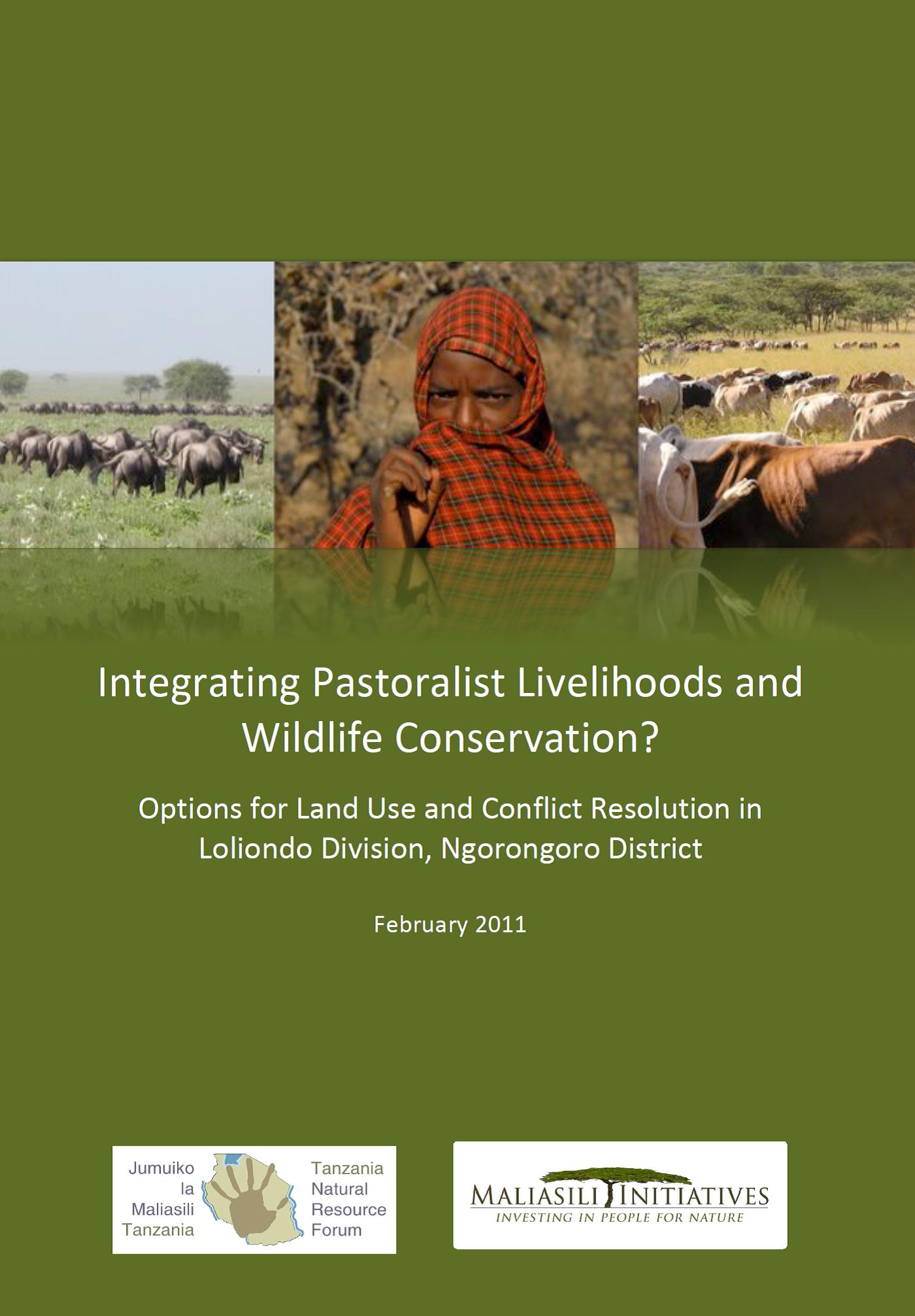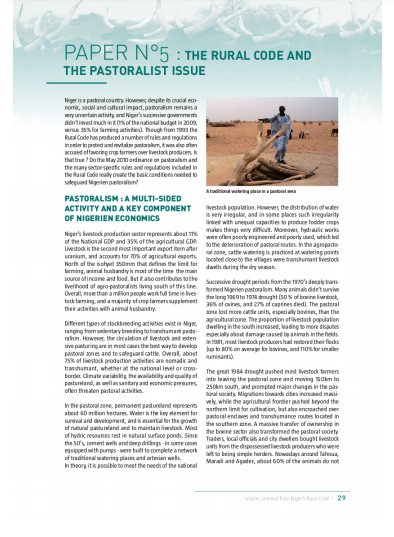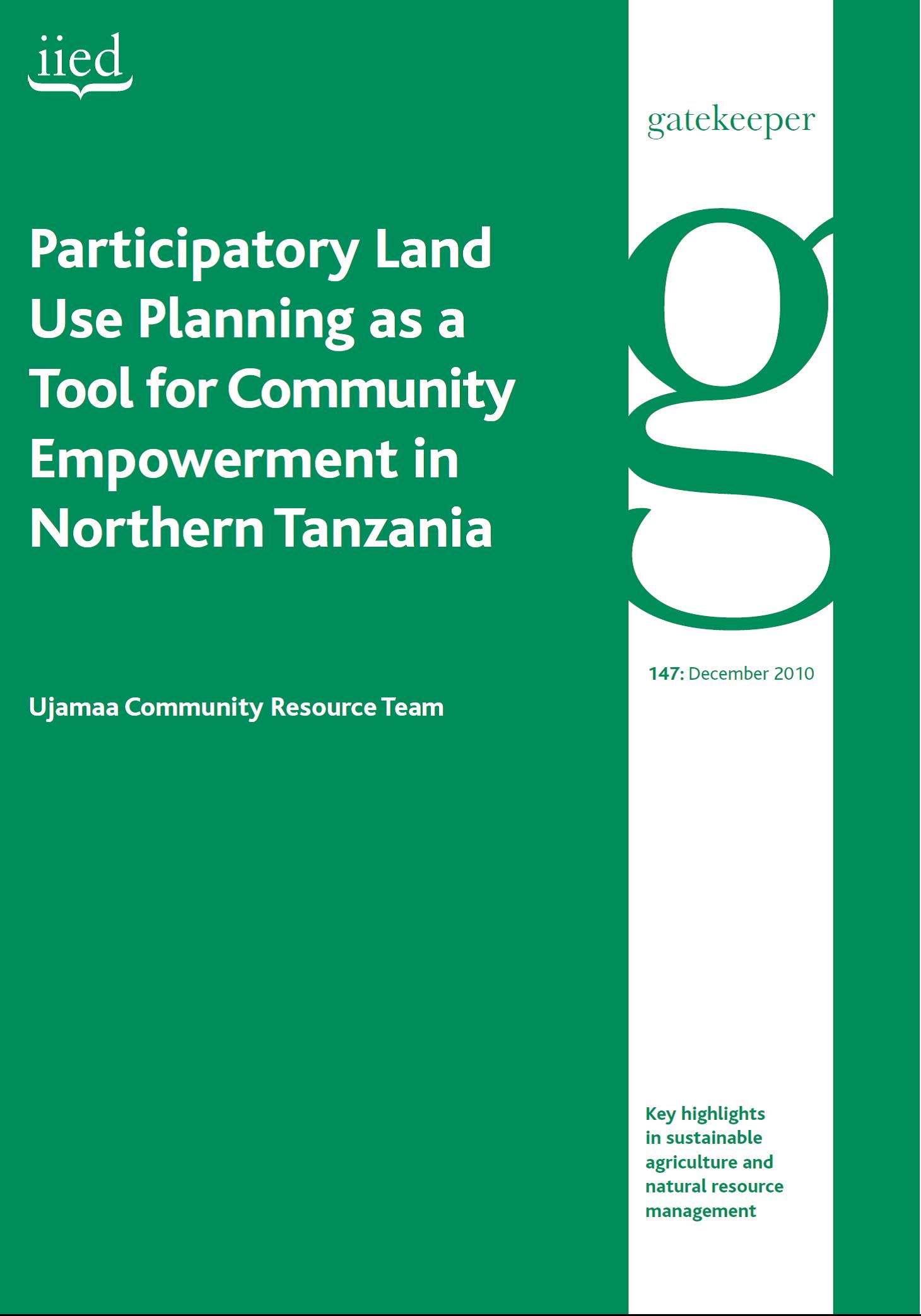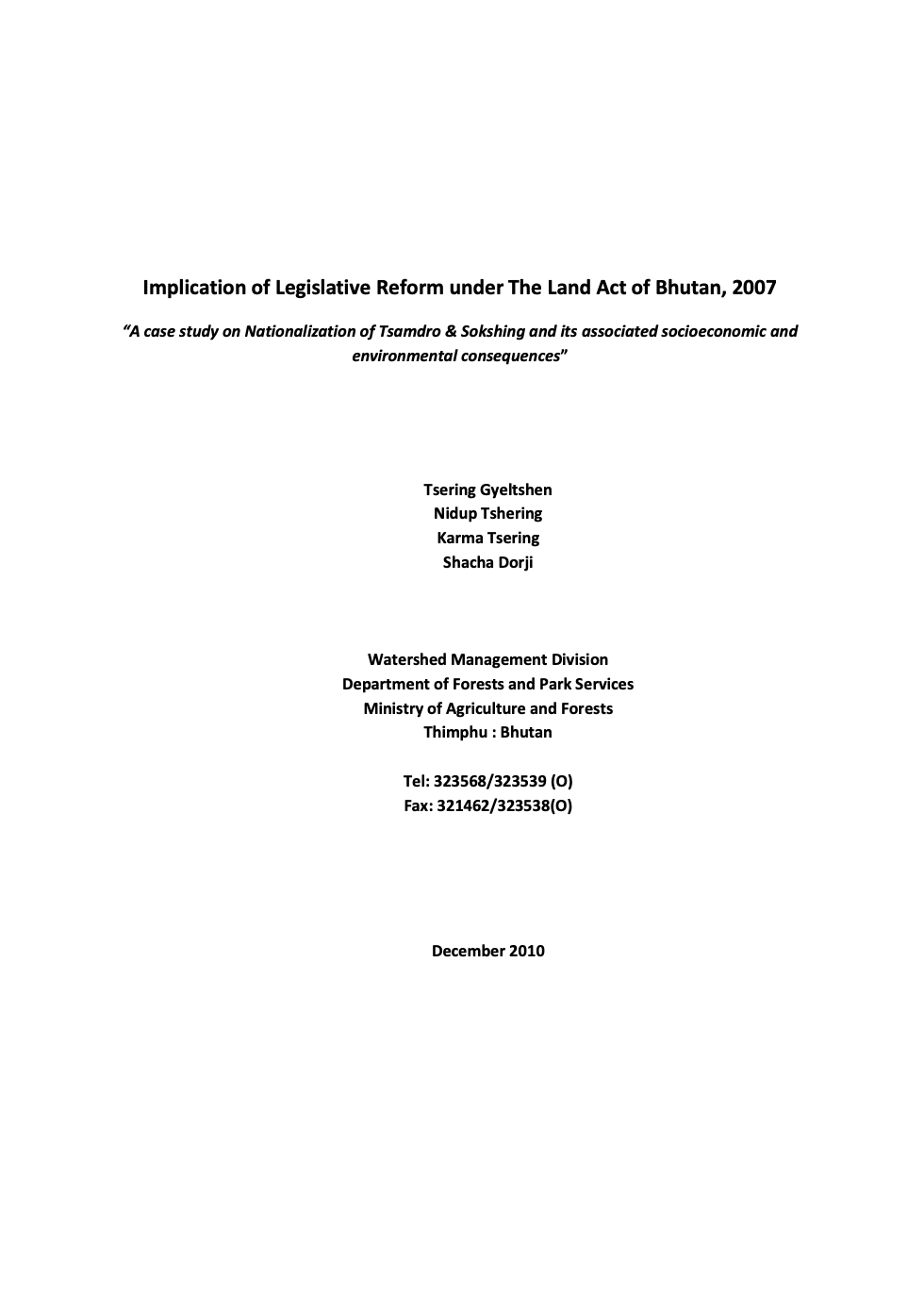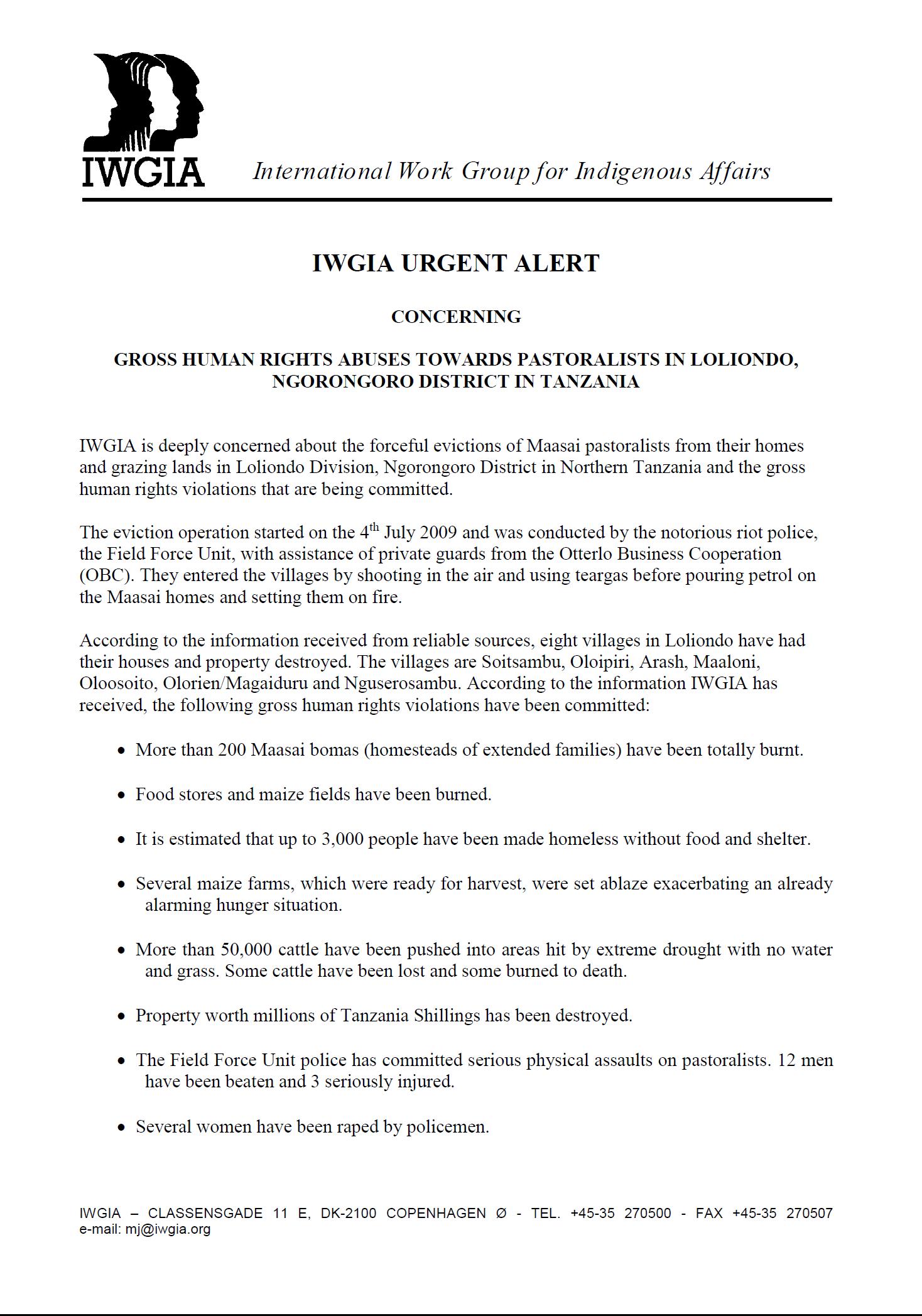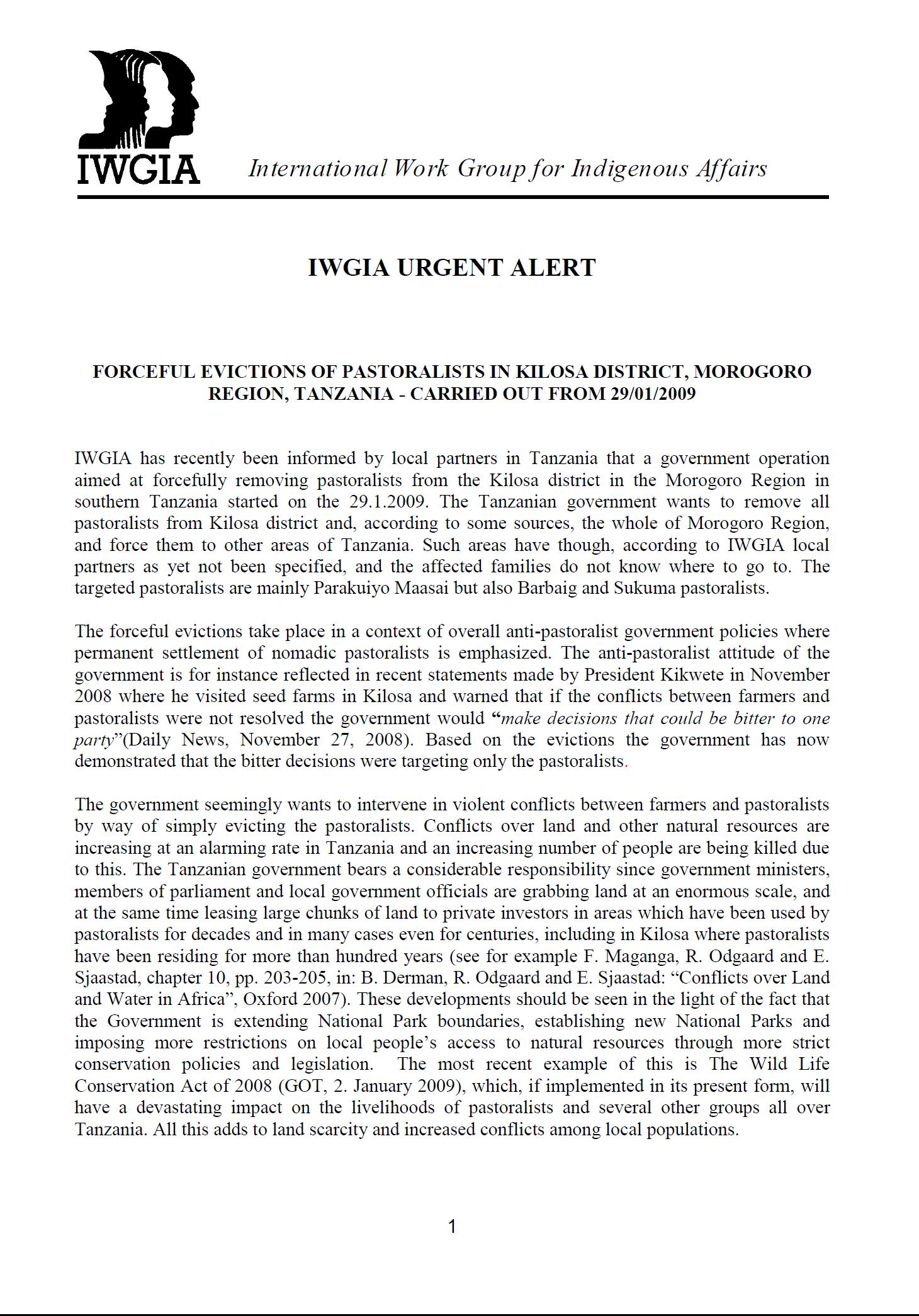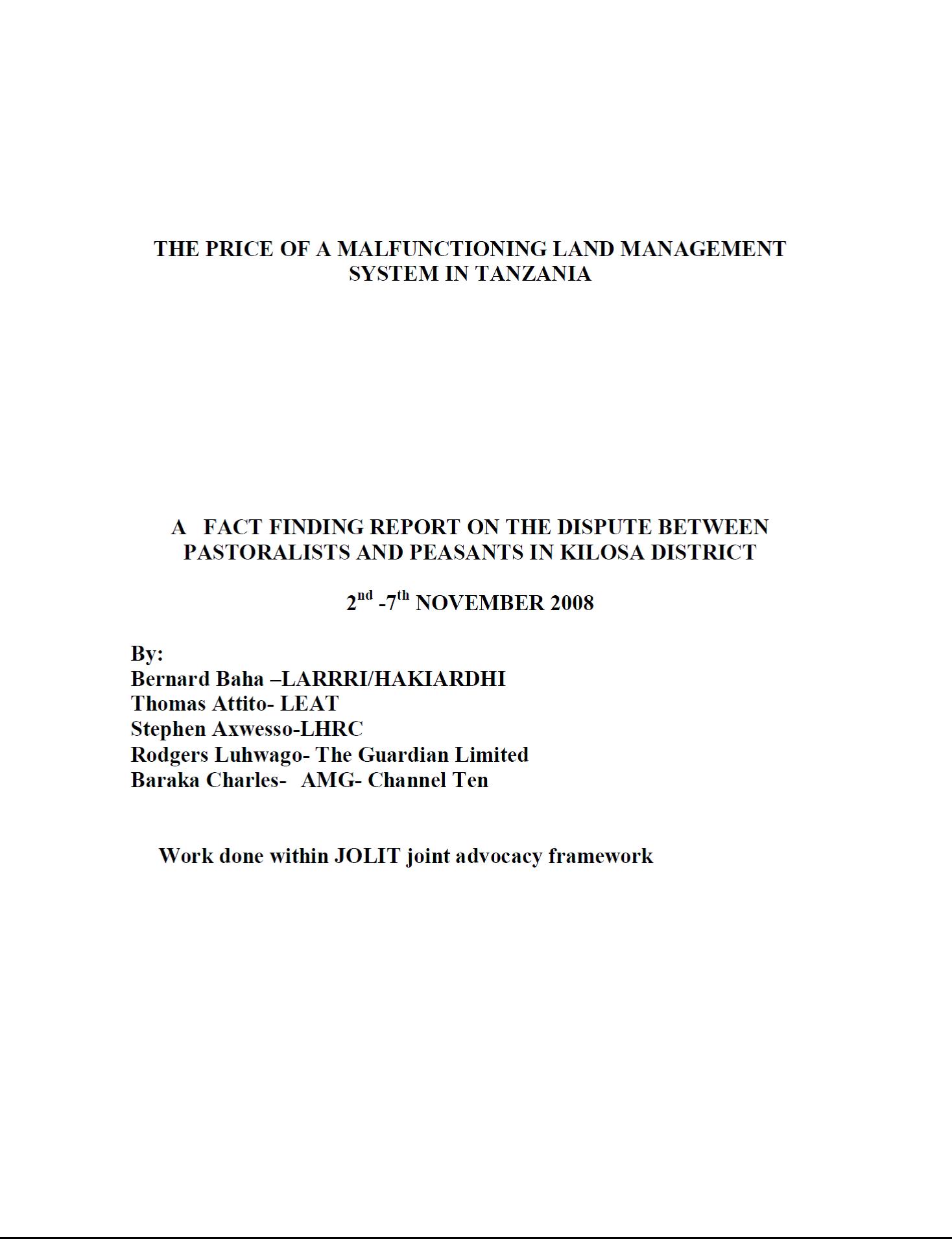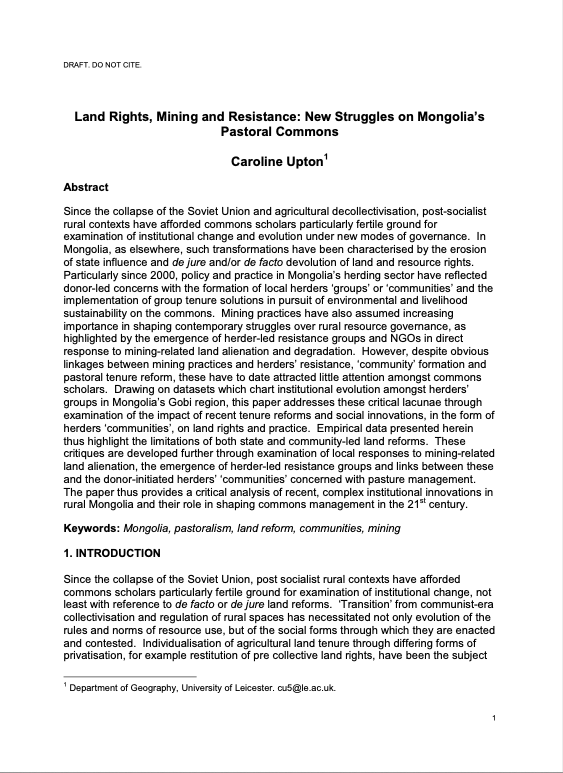Report on TALA-Media Joint Mission on Land Rights for Agro-pastoralists and Farmers Ulanga District
This is a report on TALA-Media joint mission in response to recently reported killings of 5 agro pastoralists and farmers in Maguba area Malinyi Division in Ulanga District. These people were allegedly reported to be killed by gun shots by the Tanzania Peoples Defense Forces on Saturday 17th March, 2012.

